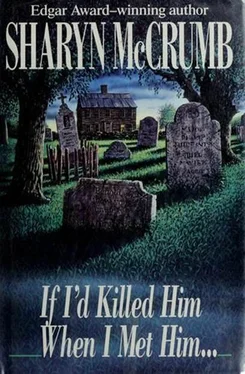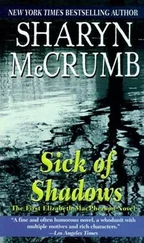“You mean Eleanor Royden? In what way?” Elizabeth was being briefed on the case in her capacity as the official investigator for the firm of MacPherson and Hill. “Is the client unintelligent?”
“I wish,” said Powell bitterly. “Stupid defendants are wonderful to work with. They do what you tell them, because they can’t think of anything else to do. You know the saying that a trial is like a chess game. Well, it is, but we lawyers like it that way, and we don’t want the red king to look up and say, ‘Rook to Queen Three,’ while the game is in progress.”
“But it’s Mrs. Royden’s trial,” Elizabeth pointed out. “Not to mention her life. Of course she’d want some input.”
“She’s had that. She exercised her freedom of choice and hired me. Now she should shut up. Usually, even clever people accused of first-degree murder are as cooperative as the dimwits, because they are completely terrified. A silverback trial lawyer once told me that killers make the best clients, because they have too much at stake to argue with you. And, of course, most murderers are not overly intellectual, anyhow. Eleanor Royden is the exception on both counts.”
“What has she done?”
A. P. Hill reached into a drawer on the side of her desk and brought out a thick legal-sized folder. “This, for starters,” she said, passing the file to Elizabeth.
“The Roanoke Times , the Washington Post , the Richmond Times-Dispatch …” Elizabeth let out a low whistle as she leafed through a sheaf of clippings. “This case is getting tremendous coverage. Eleanor Royden seems to be quoted a lot in these articles. Good picture of her!”
“She made me take some L’Oréal to the county jail. And the local women’s group put her in touch with a beautician who went in and did her makeup before the photo session. I wanted a remorseful -looking defendant. I wanted someone who looked shattered about the fact that she had taken two lives. Eleanor looks like she’s trying out for Diane Sawyer’s job.”
“She may get it,” said Elizabeth. “These are great quotes. ‘I should be charged with killing vermin without a license. How much is the fine?’ Oh, dear. And this one in the Post: ‘I’ll do community service at the Battered Women’s Shelter-if they’ll open a pistol range!’” She set the folder aside. “I see what you mean.”
“I thought you would.” A. P. Hill reached for an antacid tablet from the candy dish on her desk. “She’s making a fool out of herself. Evil Eleanor, the Clown Queen of Crime. The media loves it, of course, and she thinks that means the reporters are on her side. She can’t see that they’re only using her to get outrageous, sensational stories, and that when they tire of her ranting, they’ll turn on her.”
“I see. You’d be better off defending a sweet, timid, drab little woman with moist eyes and a catch in her voice.”
“I dream about it,” said A. P. Hill. “When I sleep at all, that is. I envision myself defending Donna Reed, or Saint Bernadette, in a little navy-blue dress with a Peter Pan collar and sensible shoes. Once in my dream, it was Oliver North in drag, looking moist-eyed at the jury and saying he was terribly sorry. Anyone but Eleanor!”
“It must be tough to dislike your client. Or do you, Powell?”
“That’s just it.” A. P. Hill sighed. “I do like her. She’s bright and witty and tough. And I think that Jeb Royden was an arrogant monster who underestimated the temerity of his victim. I don’t condone what she did, of course, but I can see how she was driven to it. But she is making it very difficult for me to mount a defense. Every time I see one of those damned bumper stickers, I cringe!”
“And you want me to find some people in Roanoke who will testify that she was really a nice, shy person before she snapped?”
“You can try,” said A. P. Hill. “I doubt if we’ll convince a jury of that, but it’s worth a shot. What I really want is witnesses who will vilify Jeb and Staci Royden. I want all the dirt I can get on them. Every act of arrogance; every example of pettiness; anything that will make them seem like cruel, shallow people. Get the divorce records- start with that. Since Eleanor is behaving like a stand-up comic, the only thing I can do is to make the victims look worse.”
“But they’re dead!”
“I can’t help that,” said A. P. Hill grimly. “They’re still going on trial.”
“You said to drop by if I wanted to pursue the matter,” said Miri Malone, with a smile that to Bill looked more like stubbornness than good humor. His mother’s housewarming party had taken place some time ago, but his conversation al fresco with Miri Malone had not faded from memory. “You know, about the connubial rights of dolphins?” she was saying. “My wanting to marry one, I mean. We talked about it at Casey and Margaret’s party.”
“It’s not the sort of thing that would slip my mind,” said Bill, wishing that the city of Danville would arrest more jaywalkers so he wouldn’t even have to consider cases like this one.
“Good. I’m glad you recall our discussion. There’s been a development.”
Bill managed to look solemn. “You’re pregnant?”
“No,” said Miri, scowling. “I wish I could pull that off, though. It would certainly strengthen the argument, wouldn’t it? But I shouldn’t have to. Men with vasectomies get remarried all the time. Procreation is not an issue.”
“There’s a pun in there somewhere,” Bill pointed out.
Miri Malone was not to be deterred by frivolousness. “I just went down and applied for a marriage license,” she informed him.
“I’d like to have seen that,” murmured Bill. “How did it go?”
“Did you know that you get marriage licenses in the Courts and Jails Building?”
“Some people consider that appropriate,” said Bill, thinking of various divorce clients. “It does look a little grim, doesn’t it? All that concrete and smoked glass.”
“I asked a man in a gray uniform where one applied for marriage licenses, and he grinned and said, ‘Upstairs. Right over the jail.’ Ugh.”
“Next to the circuit courtroom.” Bill nodded. “I know it well.”
“I went up to the long counter, and when it was my turn, I asked the clerk if I could apply for a marriage license without my fiance being present, and she wanted to know why he couldn’t come with me.”
“And you said?”
“Well, I thought about it,” said Miri. “I could have said that he is disabled, but if you’re a dolphin, it isn’t really a disability not to be able to walk, is it? In fact, for a dolphin that condition is quite normal. He might consider me disabled, because I can’t sleep in the water.”
Bill wasn’t sure that his prospective client was the best judge of what constituted “quite normal,” but he nodded to speed up the narrative. “What did you tell the clerk?”
“I said that my fiancé was unable to walk, and she expressed her sympathy, and I decided right then that I didn’t want to prolong things by misleading this clerical worker, so I just came out with it: ‘My intended husband is a person who happens to be a dolphin.’”
“Well,” said Bill. “Well. I’ll bet Mrs. Mingus didn’t have an answer to that.”
“No. She was looking sort of like a trout herself. Her mouth kept opening and closing, but nothing was coming out. Anyhow, she refused to let me apply for the license, so now we have grounds to sue the state for discrimination.”
“You might have,” said Bill, trying to force his neurons into untried pathways. There are things that even the youngest lawyers cannot explain. “I suppose that-what’s the dolphin’s name?”
Читать дальше












